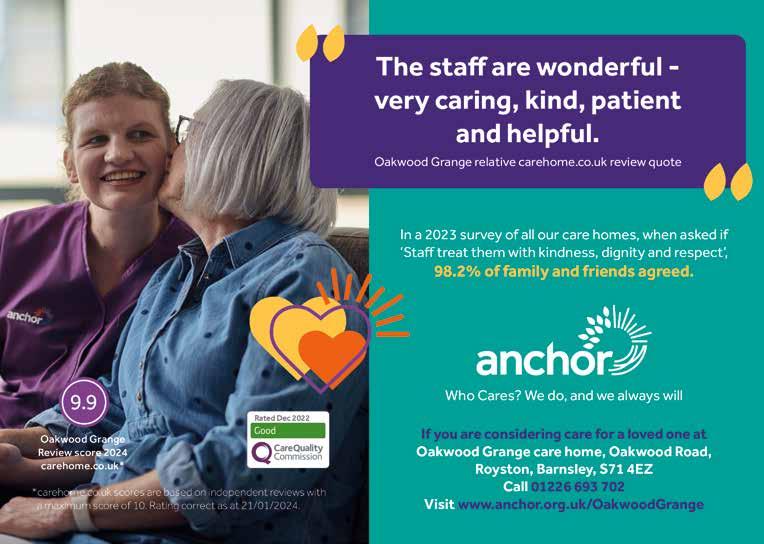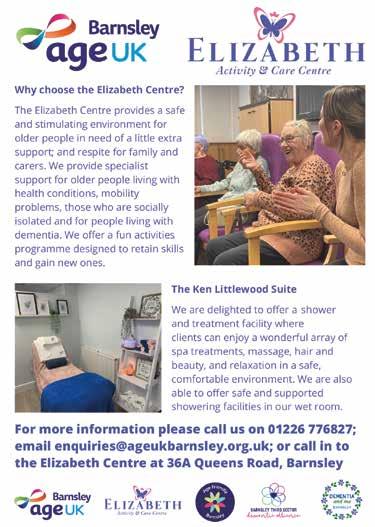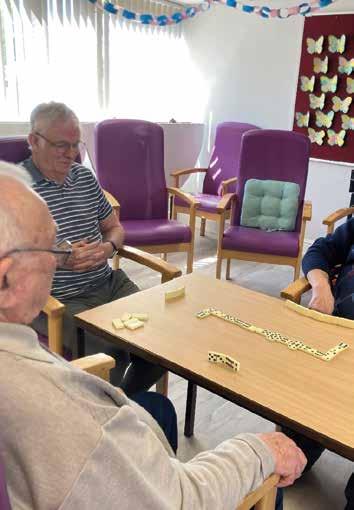What’s next?

eligible?
Healthcare services
Choosing the right one






What’s next?

eligible?
Healthcare services
Choosing the right one





If you’re receiving social care services from us, you need to let us know if you’re going into hospital as we’ll need to cancel these services until you’re ready to go home.
If you’ve arranged your care services, you’ll also need to tell your personal assistant or care agency about your hospital stay, whether you pay for care yourself or through a direct payment.
If you’re going to be in hospital for a long time, you’ll need to find out how this will affect your benefits and council tax.
When the hospital staff make a decision that you are ready to leave hospital, a case manager from the Discharge to Assess Team will make contact with you to see if you need any support when you return home as part of your discharge plan. You may require short term support from the reablement service to support with your recovery and to regain your strength and independence.
If you’ve been in hospital or had a period of illness and you need some support to regain living skills, confidence and independence to live at home, our reablement service may be able to help you.
We provide short-term support to give you advice and guidance to enable you to complete day-to-day activities safely, so you can do the things that are important to you.
We provide short-term support to give you advice and guidance to enable you to complete day-to-day activities safely, so you can do the things that are important to you.
We may provide you with items of equipment or advise you about suitable assistive living technology (telecare) such as pendant alarms, that would help you to live independently.
Our team is made up of an occupational therapist, practitioners and support workers who will provide support and monitor your progress.
A referral can be made by a hospital team following a hospital stay, or from the voluntary and community sector if you’ve stayed in your own home.
We’ll talk to you about the things that are important to you and where you might need to regain your skills to do these things more confidently. The service you receive will be tailored to your individual needs.

During your period of reablement we’ll talk to you about any ongoing care and support needs you may still have, and refer you to the appropriate services.
You can also find a service on Live Well Barnsley if you’d like to search for support services yourself.
Following your period of reablement if you require on-going support you will be assessed under the Care Act 2014 . A Social Care Worker will complete an assessment to identify what eligible care needs you have and will discuss with you how your care and support needs can be met. A financial assessment will determine how much you have to contribute towards the cost of your care and support. If you prefer you can choose to arrange and pay for your care and support yourself.
Our reablement service is registered with the Care Quality Commission, which means we have quality inspections. You can read our latest inspection report on the Care Quality Commission website.



Some people with long-term complex health needs qualify for free social care arranged and funded solely by the NHS. This is known as NHS continuing healthcare.
NHS continuing healthcare can be provided in a variety of settings outside hospital, such as in your own home or in a care home.
NHS continuing healthcare is for adults. Children and young people may receive a “continuing care package” if they have needs arising from disability, accident or illness that cannot be met by existing universal or specialist services alone.
Find out more about the children and young people’s continuing care national framework on GOV.UK
You should be fully involved in the assessment process and kept informed, and have your views about your needs and support taken into account. Carers and family members should also be consulted where appropriate.
A decision about eligibility for a full assessment for NHS continuing healthcare should usually be made within 28 days of an initial assessment or request for a full assessment.
If you are not eligible for NHS continuing healthcare, you can be referred to your local council who can discuss with you whether you may be eligible for support from them.
If you still have some health needs then the NHS may pay for part of the package of support. This is sometimes known as a “joint package” of care.
Your eligibility for NHS continuing healthcare depends on your assessed needs, and not on any particular diagnosis or condition.
To be eligible for NHS continuing healthcare, you must be assessed by a team of healthcare professionals (a multidisciplinary team). The team will look at all your care needs and relate them to:
• what help you need
• how complex your needs are
• how intense your needs can be
• how unpredictable they are, including any risks to your health if the right care is not provided at the right time
Your eligibility for NHS continuing healthcare depends on your assessed needs, and not on any particular diagnosis or condition. If your needs change then your eligibility for NHS continuing healthcare may change.

The process involved in NHS continuing healthcare assessments can be complex. An organisation called Beacon gives free independent advice on NHS continuing healthcare.
Visit the Beacon website or call the free helpline on 0345 548 0300.

Integrated care boards, known as ICBs (the NHS organisations that commission local health services), must assess you for NHS continuing healthcare if it seems that you may need it.
For most people, there’s an initial checklist assessment, which is used to decide if you need a full assessment. However, if you need care urgently – for example, if you’re terminally ill – your assessment may be fast-tracked.
Being referred for a full assessment does not necessarily mean you’ll be eligible for NHS continuing healthcare. The purpose of the checklist is to enable anyone who might be eligible to have the opportunity for a full assessment.
The professional(s) completing the checklist should record in writing the reasons for their decision, and sign and date it. You should be given a copy of the completed checklist.
For most people, there’s an initial checklist assessment, which is used to decide if you need a full assessment.
The initial checklist assessment can be completed by a nurse, doctor, other healthcare professional or social worker. You should be told that you’re being assessed, and what the assessment involves.
Depending on the outcome of the checklist, you’ll either be told that you do not meet the criteria for a full assessment of NHS continuing healthcare and are therefore not eligible, or you’ll be referred for a full assessment of eligibility.
You can download a blank copy of the NHS continuing healthcare checklist from GOV.UK
Full assessments for NHS continuing healthcare are undertaken by a multidisciplinary team (MDT) made up of a minimum of 2 professionals from different healthcare professions. The MDT should usually include both health and social care professionals who are already involved in your care. You should be informed who is co-ordinating the NHS continuing healthcare assessment.

The team’s assessment will consider your needs under the following headings:
• breathing
• nutrition (food and drink)
• continence
• skin (including wounds and ulcers)
• mobility
• communication
• psychological and emotional needs
• cognition (understanding)
• behaviour
• drug therapies and medicine
If you’re eligible for NHS continuing healthcare, the next stage is to arrange a care and support package that meets your assessed needs.
• altered states of consciousness
• other significant care needs
These needs are given a weighting marked “priority”, “severe”, “high”, “moderate”, “low” or “no needs”.
If you have at least 1 priority need, or severe needs in at least 2 areas, you can usually expect to be eligible for NHS continuing healthcare.
You may also be eligible if you have a severe need in 1 area plus a number of other needs, or a number of high or moderate needs, depending on their nature, intensity, complexity or unpredictability.
In all cases, the overall need, and interactions between needs, will be taken into account, together with evidence from risk assessments, in deciding whether NHS continuing healthcare should be provided.
The assessment should take into account your views and the views of any carers you have. You should be given a copy of the decision documents, along with clear reasons for the decision.
You can download a blank copy of the NHS continuing healthcare decision support tool from GOV.UK
If your health is deteriorating quickly and you’re nearing the end of your life, you should be considered for the NHS continuing healthcare fast-track pathway, so that an appropriate care and support package can be put in place as soon as possible – usually within 48 hours.
If you’re eligible for NHS continuing healthcare, the next stage is to arrange a care and support package that meets your assessed needs.
Depending on your situation, different options could be suitable, including support in your own home and the option of a personal health budget.
If it’s agreed that a care home is the best option for you, there could be more than 1 local care home that’s suitable.
Your ICB should work collaboratively with you and consider your views when agreeing your care and support package and the setting where it will be provided. However, they can also take other factors into account, such as the cost and value for money of different options.
If your needs have changed, the review will also consider whether you’re still eligible for NHS continuing healthcare.
If you’re eligible for NHS continuing healthcare, your needs and support package will normally be reviewed within 3 months and thereafter at least annually. This review will consider whether your existing care and support package meets your assessed needs. If your needs have changed, the review will also consider whether you’re still eligible for NHS continuing healthcare.
ICBs will normally make a decision about eligibility for NHS continuing healthcare within 28 days of getting a completed checklist or request for a full assessment, unless there are circumstances beyond its control.
If the ICB decides you’re eligible, but takes longer than 28 days to decide this and the delay is unjustifiable,
I have a local authority support package that works well. I’m now eligible for NHS continuing healthcare – will my support package change?
If you’re concerned about changes to your care package because of a move to NHS continuing healthcare, your ICB should talk to you about ways that it can give you as much choice and control as possible. This could include the use of a personal health budget, with 1 option being a “direct payment for healthcare”.
Can I refuse an assessment for NHS continuing healthcare? If I refuse, will I be able to get services from my local authority?
Consent is not needed for completion of assessments (CHC Checklists, Decision Support Tools (inclusive of FNC by default) and Fast Track), or collation and sharing of information with:
• Care Teams
• Health and Social Care Staff
But consent is needed to share personal information collected for, and as part of, assessments (Checklist, Decision Support Tool (inclusive of FNC by default) and Fast Track) with third parties, such as family, friends or representatives, at the beginning of the process.
There is a legal limit to the types of services that a Local Authority can provide. If you have any concerns about being assessed for NHS continuing healthcare, the ICB should explore your reasons for this, and try to address your concerns.
they should refund any care costs from the 29th day until the date of their decision.
If you’re not eligible for NHS continuing healthcare, but you’re assessed as requiring nursing care in a care home (in other words, a care home that’s registered to provide nursing care) you’ll be eligible for NHS-funded nursing care.
This means that the NHS will pay a contribution towards the cost of your registered nursing care. NHS-funded nursing care is available irrespective of who is funding the rest of the care home fees.
Find out more about NHS continuing healthcare from NHS England.
If someone lacks the mental capacity to consent to sharing of information with third parties (other than Care Teams or Health and Social Care Staff), the principles of the Mental Capacity Act will apply and a best interests decision may be needed.
Q
My relative is in a care home and has become eligible for NHS continuing healthcare. The ICB says the fees charged by this care home are more than they would usually pay, and has proposed a move to a different care home. I think a move will have a negative effect on my relative. What can we do?
If there’s evidence that a move is likely to have a detrimental effect on your relative’s health or wellbeing, discuss this with the ICB. It will take your concerns into account when considering the most appropriate arrangements.
If the ICB decides to arrange an alternative placement, they should provide a reasonable choice of homes.
Q
Is it possible to pay top-up fees for NHS continuing healthcare?
No, it is not possible to top up NHS continuing healthcare packages, like you can with local authority care packages.
The only way that NHS continuing healthcare packages can be topped up privately is if you pay for additional private services on top of the services you’re assessed as needing from the NHS. These private services should be provided by different staff and preferably in a different setting.
You’ll be given a personal budget to spend if your local council decide you’re eligible for help with any social care and support you need. You can request an assessment from the council to establish your needs.
The money in your personal budget can be paid to you, to help you make more decisions about how it’s spent. This is known as a direct payment.
Your personal budget is the amount of money your local council will pay towards any social care and support you need.
The amount of money in your personal budget is decided by your local council after a needs assessment to work out:
• what kind of care and support you need
• how much it will cost
• how much you’re able to afford yourself
If you’re a carer, you may be entitled to receive a personal budget after having a carer’s assessment to see what might help make your life easier.
If you’re a carer, you may be entitled to receive a personal budget after having a carer’s assessment to see what might help make your life easier.
A carer’s assessment is free and anyone over 18 can ask for one.
You can ask the council to either:
• manage your personal budget for you
• pay the money to another organisation – such as a care provider
• pay the money directly to you or someone you choose – this is known as a direct payment
You can also choose a combination of these options. For example, the council could arrange some of your care but send you the rest of the money. This is often called a mixed package or “mix and match”.
If the council manages your money
The money in your personal budget will be spent for you by the council. They will arrange all your care and support based on your agreed care plan.
They still need to check you’re happy with the care they’re arranging for you.
If your money is paid to another organisation
The organisation you choose, such as your care provider, will speak to the council and arrange the payments.
Sometimes other organisations charge you extra money to arrange payments from the council.
Direct payments give you more flexibility over how your care and support is arranged and provided.
For example, you could choose to hire care workers or personal assistants who:
• are always the same people and available when you need them
• speak the same language as you
• have experience working with your care needs
• are a specific person that has been recommended to you
• can help you get to shops or social events
You could also consider having someone else manage your direct payments, for example a friend or family member.
There are many ways you could choose to use the money. It’s your choice as long as you’re spending your personal budget on things that meet your agreed care plan.
Most councils will ask for evidence of how you’ve spent your money every 3 months.
You may decide direct payments are not helpful if:
• you’re worried about managing money or the people you employ
• you spend a lot of time in hospital
• you would rather the council arranged your care
If you’re not confident about keeping records or managing the people who care for you, your local council should be able to provide support.
You could also consider having someone else manage your direct payments, for example a friend or family member. You’ll need to set up a trust for payments that are managed by someone else.
The Money Advice Service has information about setting up a trust.
You should be offered direct payments as an option after your needs assessment.
You can also ask your local council’s social services department about direct payments.
If you choose direct payments, the council will send you the money in your personal budget by either:
• paying it directly into a bank or building society
• money can also be paid to a 3rd party agency to manage on behalf of individuals
You can then choose how you spend the money on your own care and support, as long as it matches the care plan you’ve agreed with the council.
The council might ask you to sign a document called a direct payment agreement. This says:
• how the council want you to record your spending –for example, keeping receipts
You could also consider having someone else manage your direct payments, for example a friend or family member.

There are many ways you could choose to use the money. It’s your choice as long as you’re spending your personal budget on things that meet your
You may decide direct payments are not helpful if:
• you’re worried about managing money or the
• you spend a lot of time in hospital
• you would rather the council arranged your care
If you’re not confident about keeping records or managing the people who care for you, your local council should be able to provide support.
You could also consider having someone else manage your direct payments, for example a friend or family member. You’ll need to set up a trust for payments that are managed by someone else.
The Money Advice Service has information about setting up a trust. for example, keeping receipts


• your responsibilities as an employer - if you’re paying for a care worker
If you spend direct payments on something that isn’t agreed in your care plan, the council could take the money back or end the direct payments.
If you’re struggling to manage your money
Ask your local council for advice or call the Money Advice Service on 0800 138 7777.
If you want someone else to receive the direct payment
You could speak to the council and agree for the money to be sent to someone who will spend it for you. For example:
• a carer
When choosing an agency, decide what sort of service you’re looking for and the tasks you need help with.
• a friend or family member
• someone else who speaks up for you (an advocate)
You may need to write down how they will spend the money and which decisions they can make for you.
This is known as a decision-making agreement.
Employing your own carer or personal assistant
If you decide to hire a carer or personal assistant yourself, it’s important to know the responsibilities you’ll have as an employer.
Although support from the council should be available, you may need to arrange:
• background checks or references
• tax
• National Insurance
• pension contributions
Read more about employing someone to work in your home on GOV.UK.
Disability Rights UK also have more information on getting a personal assistant.
You could choose to hire care workers through an agency instead. This removes the legal obligations of being an employer, but could:
• cost you more money
• remove some of the benefits - such as having the same person provide your care
When choosing an agency, decide what sort of service you’re looking for and the tasks you need help with. It’s a good idea to contact more than one agency, as they may offer different types of services.
You can find out about local home care agencies by:
• speaking to your local council’s social services department
• contacting the UK Homecare Association
If you’re eligible for NHS-funded nursing care, the NHS will arrange and fund nursing care provided by registered nurses employed by the care home.
There are also organisations that inspect care agencies to see how well they are doing. The Care Quality Commission (CQC) regulates all health and adult social care in England.
You might see a CQC inspection rating when you search online for care home agencies. Their 4 ratings are:
• Outstanding
• Good
• Requires improvement
• Inadequate
You could also search for care home agencies on the CQC website to see their full reports.
If you would like support to help you manage your personal budget or direct payments, speak to your council or call:
• the Disability Rights UK personal budgets helpline on 0330 995 0404
• the Age UK advice line on 0800 055 6112 (for older people)
NHS-funded nursing care is when the NHS pays for the nursing care component of nursing home fees. The NHS pays a flat rate directly to the care home towards the cost of this nursing care.
Who is eligible for NHS-funded nursing care?
You may be eligible for NHS-funded nursing care if:
• you’re not eligible for NHS continuing healthcare but have been assessed as needing care from a registered nurse
• you live in a nursing home
You should be assessed for NHS continuing healthcare before a decision is made about whether you are eligible for NHS-funded nursing care.
Most people don’t need a separate assessment for NHS-funded nursing care. However, if you do need an assessment or you haven’t already had one, your integrated care board (ICB) can arrange an assessment for you.
If you’re eligible for NHS-funded nursing care, the NHS will arrange and fund nursing care provided
It’s worth speaking to your council’s social services before making an official complaint to see if they can help.
You still have to the right to complain if you:
• have been told you’re not eligible to receive money towards your care and support
• don’t agree with the amount of money in your personal budget
You could either:
• speak to your social worker about being re-assessed
• call your local council social services and request a complaints form
Your council should also have a formal complaints procedure on its website.
If you’re not happy with the council’s response
Contact your Local Government Ombudsman. They investigate all adult social care complaints.
• Age UK have a detailed fact sheet on personal budgets and direct payments in social care
• The Money Advice Service has a guide to direct payments
by registered nurses employed by the care home. Services provided by a registered nurse can include planning, supervising and monitoring nursing and healthcare tasks, as well as direct nursing care.
If you’re not eligible for NHS-funded nursing care and you don’t agree with the decision about your eligibility, ask your ICB to review the decision.
The cost of NHS-funded nursing care
NHS-funded nursing care is paid at the same rate across England. In May 2022, the rate was set at £209.19 a week (standard rate) and will be backdated to 1 April 2022.
If you moved into a care home before 1 October 2007, and you were on the previous high band, NHS-funded nursing care is paid at a higher rate. In May 2022, the higher rate was set at £287.78 a week and will be backdated to 1 April 2022. You’re entitled to continue on this rate unless:
• you no longer have nursing needs
• you no longer live in a care home that provides nursing
• your nursing needs have reduced and you’re no longer eligible for the high band, when you would change to the standard rate of £209.19 a week, or
• you become entitled to NHS continuing healthcare instead
You will not be entitled to help with the cost of care from your local council if:
• you have savings worth more than £23,250 – this is called the upper capital limit, or UCL, and will rise to £100,000 from October 2025
• you own your own property (this only applies if you’re moving into a care home)
You can ask your council for a financial assessment (means test) to check if you qualify for any help with costs.
You can choose to pay for care yourself if you don’t want a financial assessment.
How to arrange your care as a self-funder
You can:
• arrange and pay for care yourself without involving the council
• ask the council to arrange and pay for your care (the council will then bill you, but not all councils offer this service and they may charge a fee)
Having a carer who lives with you costs from around £800 a week. But it can cost as much as £1,600 a week if you need a lot of care.
There are 2 types of care home:
• residential homes have staff that help with everyday tasks such as getting dressed and supply all your meals
• nursing homes also offer 24-hour nursing care
A room in a care home costs:
• around £700 a week in a residential home
• over £850 a week in a nursing home
The price will vary according to where you live and the type of care you need.
For example, serious health problems like dementia and chronic obstructive pulmonary disease (COPD) can increase the cost.
Even if you choose to pay for your care, your council can do an assessment to check what care you might need. This is called a needs assessment.
Even if you choose to pay for your care, your council can do an assessment to check what care you might need. This is called a needs assessment.
For example, it’ll tell you whether you need home help from a paid carer for 2 hours a day or 2 hours a week and precisely what they should help you with.
The needs assessment is free and anyone can ask for one.
How much will care cost?
Social care can be expensive. Knowing how much you’ll have to pay will help you budget.
Paying for carers at home
A typical hourly rate for a carer to come to your home is around £20, but this will vary depending on where you live.
You may be eligible for benefits, like Attendance Allowance and Personal Independence Payment (PIP), which aren’t means-tested.
You can use them to pay towards the cost of your care.
You won’t have to sell your home to pay for help in your own home.
But you may have to sell your home to pay for a care home, unless your partner carries on living in it.
Sometimes selling your home to pay care home fees is the best option.
But there may be other ways to pay care home fees if you don’t want to sell your home straight away.
Contact your local council about 3 months before you think your savings will drop to below the limit and ask them to reassess your finances.
Releasing money from your home (equity release)
Equity release lets you take money that’s tied up in your home without selling it. It’s available if you’re over 55.
But you have to pay interest on the money you take out, which can be expensive.
MoneyHelper has more information on equity release.
You can rent out your home and use the income to help pay your care home fees.
A deferred payment scheme can be useful if you have savings less than £23,250 (or £100,000 from October 2025) and all your money is tied up in your property.
The council pays for your care home and you repay it later when you choose to sell your home, or after your death.
Ask your council if you’re eligible for a deferred payment scheme.
You can get more information from:
• MoneyHelper: deferred payment schemes
• Independent Age: do I have to sell my home to pay for residential care?
You can get unbiased expert advice from a specialist care fees adviser.
They’ll help you compare all your options before you decide what’s right for you.
Find a specialist care fees adviser in your area with:
• PayingForCare, a free information service for older people
• Society of Later Life Advisers (SOLLA) on 0333 2020 454
Telephone help
Get advice on paying for care from:
• Age UK on freephone 0800 055 6112
• Independent Age on freephone 0800 319 6789
• MoneyHelper on freephone 0800 011 3797
If your savings fall below the upper capital limit of £23,250 (or £100,000 from October 2025), your council might be able to help with the cost of care.
Contact your local council about 3 months before you think your savings will drop to below the limit and ask them to reassess your finances.
Councils provide funding from the date you contact them. You won’t be reimbursed if your savings are below the limit before you contact them.
You might be able to get some free help regardless of your income or if you’re paying for your care.
This can include:
• small bits of equipment or home adaptations that each cost less than £1,000
• NHS care, such as NHS continuing healthcare, NHSfunded nursing care and care after illness or hospital discharge (reablement)

Having a carer come to visit you in your home can make a huge difference to your life, especially if you have difficulty walking or getting around. It can help you stay living independently in your own home.
This type of care is known as Support to live at home.
Support to live at home from a paid carer costs around £20 an hour, but it varies according to where you live. Sometimes, the council will contribute to the cost and the provider you have.
Support to live at home is very flexible. You might need a carer for only an hour a week or for several hours a day. You might need a live-in carer.
It can be temporary – for example for a few weeks while you recover from an illness. Or it can be long term.
You might also consider home adaptations or household gadgets or equipment to make life easier.
You might want to consider care at home if:
Contact a charity such as the Royal Voluntary Service, the British Red Cross or your local Age UK to see whether they can help.
• you’re finding it difficult to cope with daily routines, such as washing, dressing and getting out and about
• you don’t want to move into a care home
• you can still get about your home and it’s safe for you to live in – or it can be adapted to make it safe
A carer can visit you at home to help you with all kinds of things including:
• getting out of bed in the morning
• washing and dressing
• brushing your hair
• using the toilet
• preparing meals and drinks
• remembering to take your medicines
• doing your shopping
• collecting prescriptions or your pension
• getting out, for example to a lunch club
• getting settled in the evening and ready for bed
This is slightly different to homecare and means dayto-day domestic tasks that you may need a helping hand with such as:
• cleaning (including putting on clean bed sheets)
• doing the washing up
• doing the laundry
• gardening
You might want some home help instead of or as well as homecare.
Most councils don’t provide home help. Contact a charity such as the Royal Voluntary Service, the British Red Cross or your local Age UK to see whether they can help (they may not be free).
Your local council can arrange homecare for you if you’re eligible for it.
You can arrange your own homecare.
If the council is paying for some or all of your homecare, they must give you a care and support plan.
If you want the council to help with homecare for you, start by asking them for a needs assessment.
Your needs assessment will help the council to decide whether you’re eligible for care.
If you’re eligible, the council may recommend help at home from a paid carer. They will arrange the homecare for you.
If you’re not eligible for care, the council must still give you free advice about where you can get help in your community.
Even if you’re intending to make arrangements yourself with an agency or private carer, it’s still a good idea to have a needs assessment as it will help you to explain to the agency or carer what kind of help you need.
Depending on your circumstances, your local council may contribute to the cost of care or you may have to pay for it yourself.


We offer a friendly, professional cleaning service and expect every job that is undertaken to be of the highest standard.
How your council can help
We have NO sign up fees, NO upfront costs and we will offer free quotations after a visit to your home. Only 24hrs notice is required for cancellations. We accept payments via Cash, Cheque or Bank Transfer. We cover the whole of Barnsley and surrounding areas, offering daily, weekly, and fortnightly cleans. £13 per hour. We do have a minimum of a 1 hour booking policy, time increases in 30 min instalments after that.
If you want the council to help with homecare for you, start by asking them for a needs assessment. Your needs assessment will help the council to decide whether you’re eligible for care.
Call 01226 752217 or 07990 925959
5 Garden Grove, Hemingfield, S73 0PR
If the council is paying for some or all of your homecare, they must give you a care and support plan.
If your needs assessment recommends support to live at home, you may get help with the cost from the council.
What you will contribute depends on your income and savings. The council will work this out in a financial assessment.
If the council is paying for some or all of your homecare, they must give you a care and support plan.
This sets out what your needs are, how they will be met and your personal budget (the amount the council thinks your care should cost).
You can choose to receive your personal budget as a direct payment each month. This gives you the control to employ someone you know to care for you at home rather than using a care agency, though you’ll then have responsibilities as an employer.
If you aren’t eligible for the council to contribute to your care costs, you will have to pay for it yourself.

If your needs assessment recommends support to live at home, you may get help with the cost from

If you’re eligible, the council may recommend help at home from a paid carer. They will arrange the homecare for you.
If you’re not eligible for care, the council must still give you free advice about where you can get help in your community.
Even if you’re intending to make arrangements yourself with an agency or private carer, it’s still a good idea to have a needs assessment as it will help you to explain to the agency or carer what kind of help you need.
Every possible care has been taken to ensure that the information given in this publication is correct at the time of going to print. Whilst the publisher would be grateful to learn of any errors, it cannot accept any liability over and above the cost of the advertisement for loss there by caused. Octagon Design & Marketing Ltd have not vetted the advertisers in this publication and accepts no liability for work done or goods supplied by any advertiser. Nor does Octagon Design & Marketing Ltd endorse any of the products or services. No reproduction by any method whatsoever of any part of this publication is permitted without prior written consent of the copyright owners. Octagon Design & Marketing Ltd. ©2024. Rossington Hall, Great North Road,
The Grange and Elm Court is situated in a small village, close to local amenities with good public transport links. The home and semi-independent flats support young adults and older people with physical disabilities or mental health conditions.
Through structured support plans the service helps empower people to be as independent as possible in a safe and caring setting. Service Users can keep active in our large gardens, or engage in our wide range of activities, which include exercise classes, well being therapies, quizzes, and trips out.
Depending on your circumstances, your local council may contribute to the cost of care or you may have to pay for it yourself.

What you will contribute depends on your income pay for it yourself.



Check if you’re eligible for benefits. Some, such as Attendance Allowance and Personal Independence Payments, aren’t means tested and they can help you meet the costs of homecare.
Find out how to apply for:
• benefits for under-65s
• benefits for over-65s
If you’re arranging your own care, there are 2 main ways to do this:
• use a homecare agency
• employ your own carer
Care Provider
Homecare agencies employ trained carers and arrange for them to visit you in your home.
Care Provider employ trained carers and arrange for them to visit you in your home. You may not always have the same carer visiting your home, though the agency will try to match you with someone suitable.
How much do they cost?
It costs around £20 an hour for a carer to come to your home, but this will vary depending on where you live.
If you’re paying for yourself, the agency should be able
to give you a clear price list. They’ll send you a monthly bill for your homecare.
There are 4 main ways to do this:
• search the NHS website for local homecare services and agencies and a list of national homecare organisations and then contact the ones that interest you
• ask your council’s social services department for information on the Care Providers in your area. They may have a directory of Care Providers on their website
• contact the Care Quality Commission (CQC). All homecare agencies must register with the CQC. It can give you the latest inspection report on an agency
• ask the United Kingdom Homecare Association (UKHCA) for a list of approved homecare agencies in your area
Carers should treat you in a respectful and dignified way. For example, they should always:
• knock and ring the front door bell and announce their arrival before coming into your home
• bring an identity card
Instead of using an agency, you can hire your own carer, sometimes called a private carer or personal assistant.
• know where your keys are kept if they’re not in your home
• keep any entry codes to your house confidential
• know what to do if they can’t get into your home
• know what to do if you’ve had an accident
Instead of using an agency, you can hire your own carer, sometimes called a private carer or personal assistant.
If you employ a carer, you have the legal responsibility of an employer. This includes arranging cover for their illness and holidays.
Which? Later Life Care has advice on employing a private carer.
You have the right to complain if you’re not happy about the help at home you’re receiving. This might be because carers:
• arrive late and leave early
• don’t give your medicines to you properly
• leave your home untidy after visits
• give you poor care like dressing you wrongly
First complain to your local council or, if you’re paying
Here are some questions you may want to ask an agency before employing them:
• what charges, if any, will I be expected to pay?
• what services are charged as extras?
• have your carers looked after someone with similar needs to mine?
• how will you choose the most suitable carer for me?
• will the carer agree to visit in a specific time slot? And will they tell me if they’re delayed or running late?
• what sort of training do your carers get?
• if I’m paying for my own care, do you have a standard contract I can read before signing my own?
• if the council is contributing to my care can I see a copy of the contract they’ve signed with the agency?
• how can I contact your agency during the day, in an emergency or outside office hours?

for yourself, the agency. The council or agency should have a formal complaints procedure on their website. Try to be specific about what happened and include staff names and dates if you can.
If you’re not happy with the way the council or agency handles your complaint, ask the Local Government & Social Care Ombudsman to investigate further. An ombudsman is an independent person who’s been appointed to look into complaints about organisations.
You can also tell the Care Quality Commission (CQC), which checks social care services in England.
Your local council must provide you with an independent advocate (someone to speak up for you) to help you make a complaint if you need one.
• the charity, Independent Age, has good advice on homecare
• the CQC has a good booklet on what to expect from a good homecare agency
• read how to organise homecare from Which? Later Life Care
• Age UK has information on all aspects of homecare
• if you need help with one-off jobs like changing a light bulb or moving furniture, the charity GoodGym has volunteers who will come round to help.

The Care Quality Commission is here to make sure health and adult social care services including hospitals, home and residential care as well as GPs in England provide people with safe, effective, high-quality care. We publish independent inspection reports and ratings about services – information you can use when you’re choosing care for yourself, or a loved one.
You can use our website to search for services you might be interested in by geographical area, or by specialism. For example, a care home that might offer specialist care for someone who has dementia. We also welcome your feedback on the care you have received – good or bad. We use this information to help inform our inspections and can alert authorities including local social services, if there are safeguarding concerns about care being provided.
You can visit our website at www.cqc.org.uk to find our inspection reports, or share an experience of care. You can also call us to share an experience of care on 03000 61 61 61. Here are some tips to help you choose your care.
1 The Care Quality Commission (CQC) registers all care homes and home care agencies. You can find out which ones support specific groups of people, such as people with a learning disability or those living with dementia.
2 CQC’s Chief Inspector for Adult Social Care, Andrea Sutcliffe always uses ‘The Mum Test’: is a care home safe, caring, effective, responsive to people’s needs and well-led? In other words, is it good enough for my Mum (or anyone else I love and care for)?
3
4
Look for care homes and home care agencies where the staff involve people who use services and their families and carers, and treat individuals with compassion, kindness, dignity and respect
Whether you are being cared for in your own home or in a residential setting, the staff looking after you need to be skilled, kind and supportive. They should also be capable and confident in dealing with your particular needs. You should always feel that their support is helping you to live the life you want to.
5 A care home will be a home for you or your loved one. Residents should be treated as individuals with their likes and dislikes taken into account. Think about whether a home is close enough to family, friends, and community facilities
6
Look at how well-led and managed a home is. What does it have in place to ensure that it delivers high quality care? Does it promote meaningful activity and connect the home with the community?
7
8
If you or a loved one needs help with day-today care, you can contact your local council’s social services department. They will ‘make an assessment of your needs’ and depending on circumstances, may be able to help you access financial help. For more advice visit Age UK’s website www.ageuk.org.uk /home-and-care.
If you would like to organise your care yourself, you can find a care worker or personal assistant through an agency Your local social services department should be able to provide details of approved agencies.
9
10
CQC’s ratings will identify services as: Outstanding H Good ● Requires improvement ● Inadequate ●
This will help you make informed choices around your care. There’s also useful advice on the Social Care Institute for Excellence’s Find me good care website www.scie.org.uk/findmegoodcare/
Safeguarding adults who receive social care is everybody’s business. If you are concerned about the safety of a loved one receiving care, contact the service provider in the first instance. You can also contact social services at your local council. If you feel a crime has been committed, contact the police. You can share your safeguarding concerns with us on our website or contact our National Customer Services on 03000 616161.

1) Fundraising and events
From Memory Walk and Cupcake Day to challenging yourself in marathons and treks. There’s plenty of ways you can get involved to help raise money. Search ‘get involved’ on alzheimers.org.uk
2) Donate
Our dementia support services are made possible thanks to generous donations from the public. However, you don’t have to join an event or seek sponsorship to do this. Simply head to alzheimers.org.uk and donate what you can to unite against dementia.
3) Become a campaigner
At Alzheimer’s Society, we work to amplify the voices of people affected by dementia, to create a world where they get the support and care they deserve. We can’t do this alone. Whether you have dementia, you have a personal connection to dementia or you want to stand with those who do. Together we can make a difference, register to become a campaigner at alzheimers.org.uk
“Dementia can and does affect so many families, including mine.
“My father was diagnosed with vascular dementia and Alzheimer’s disease in the summer of 2012. He passed away in September 2018.

“I wanted to do something to help raise awareness of the condition and tackle the stigma associated, so I reached out to Alzheimer’s Society to see if I could help. It gives me an enormous sense of pride being an Ambassador for Alzheimer’s Society and I feel like I’m making a difference.
“I have also personally enjoyed taking part in fundraising activities like Cupcake Day and Memory Walk, as there is a real sense of togetherness for a good cause.
“For anyone wanting to know how they can help, I’d say get involved. Whatever you can give, be that your time, voice or money, you’ll know you’ve made a difference to the lives of people affected by dementia.”
Meera Syal, actor and Alzheimer’s Society Ambassador


If you are affected by dementia in and would like information and support, contact us:
T: 0333 150 3456
W: alzheimers.org.uk/dementiaconnect
E: dementia.connect@alzheimers.org.uk



What is the Elizabeth Activity and Care Centre?
Age UK Barnsley has over 30 years’ experience of providing day services for older people in Barnsley. These are now held at our Elizabeth Activity and Care Centre.
The Elizabeth Centre is named after the late Queen Elizabeth II and is our commemoration to a remarkable person and her seven decades of service to our country.
Why choose the Elizabeth Activity and Care Centre?
The Elizabeth Centre provides a safe, friendly and stimulating environment for older people in need of a little extra support.
We also provide respite provision for family and carers who can have a break from their caring role, knowing their loved ones are having a safe, enjoyable experience in the care of a dedicated, trained and experienced staff team who offer a warm welcome to all who come along to the centre.
We offer specialist support for older people living with health conditions, mobility problems those who are socially isolated and for people living with dementia.
We also provide a Cognitive Stimulation Therapy maintenance programme (MCST), an evidence based treatment recommended by (NICE) to improve cognition, independence and wellbeing for people living with dementia. Group members participate in stimulating and meaningful activities proven to help maintain memory and mental function.
“I feel much happier at the day centre. My daughter visits 3 times a week but I look forward to coming, day care is my life line.”
What do we do?
Our activities programme provides a person-centred approach to a variety of activities, we focus on supporting people to retain their existing skills and offer opportunities to gain new ones. Our team ensure that every person can get involved in something they enjoy, promoting the wellbeing and independence of those we support
Activities includes gentle exercise, art and crafts, musical and sporting opportunities, local and life history reminiscence and so much more besides!
A delicious two-course hot meal and refreshments are served throughout the day.



A service we are delighted to offer within the Elizabeth Centre is a shower and treatment facility. Clients can enjoy a wonderful array of spa treatments, massage and relaxation in a safe, comfortable environment. We are also able to offer showering facilities in our wet room, with a little extra support from our staff team for those who need it.
Don’t just take our word for it either! Here’s what some of our clients have had to say about our Day Services:
“I feel much happier at the day centre. My daughter visits 3 times a week but I look forward to coming, day care is my life line.”
“I don’t know how I’d be without day care I’m a different person now from when I first started.”
The Ken Littlewood Suite is named after the late Ken Littlewood. Ken was a long-standing client with Age UK Barnsley, leaving a donation to the charity – which has been used to partly fund the renovation and installation of the Shower and Treatment Room.
Therefore, the Board of Trustees decided that to honour Ken’s kindness and generosity, and to remember his long term involvement with us, we would name the facilities The Ken Littlewood Suite.
“On behalf of my mam I’d like to thank everyone for their support. Mam comes home happy and tired but in a very content way, mam loves coming home with the things she’s made and these take pride of place on her dresser.”
“I don’t know how I’d be without day care I’m a different person now from when I first started.”
For more information please contact our Day Services Manager Diane Beardshall on 01226 776827 or via email:
d.beardshall@ageukbarnsley.org.uk.
